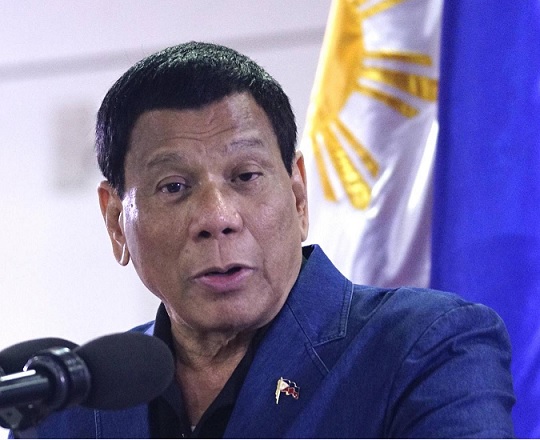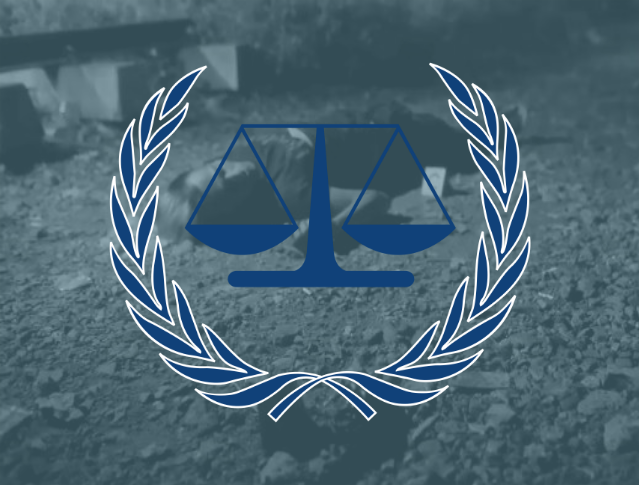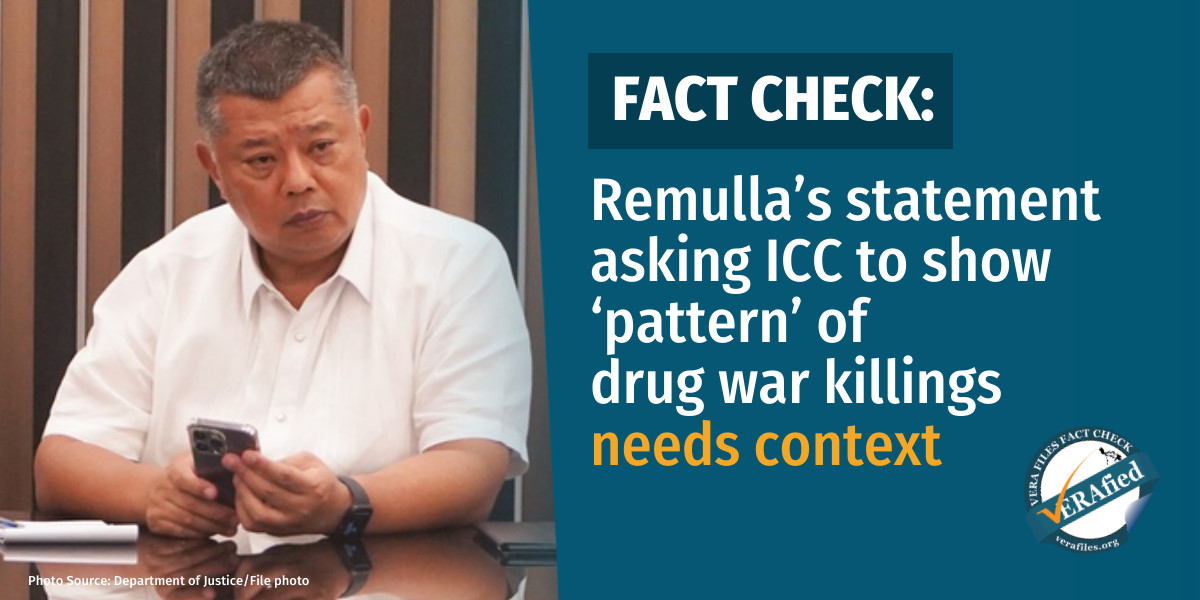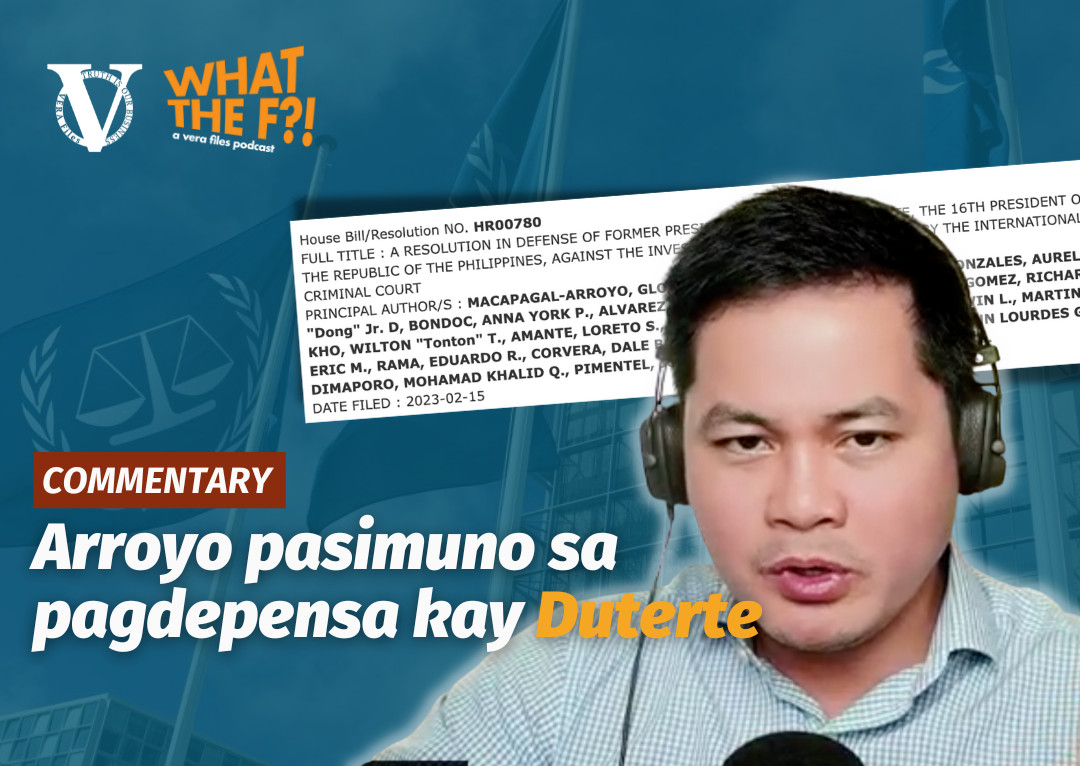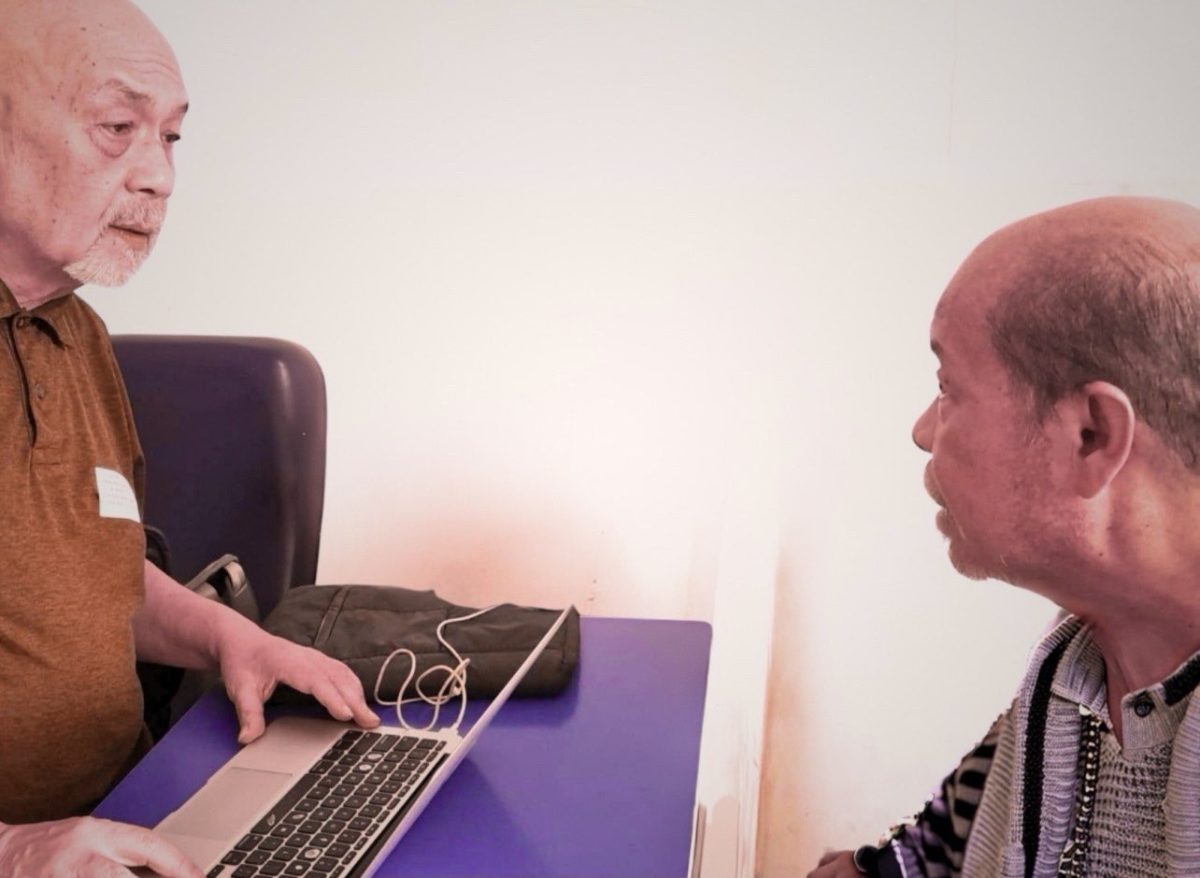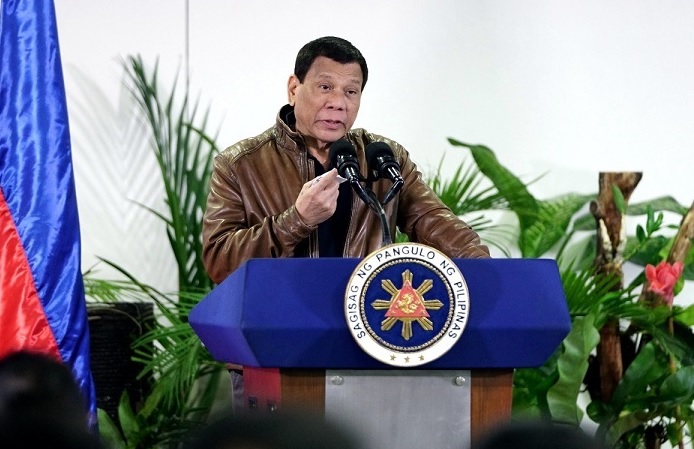
Pres. Rodrigo Duterte, the first president in Southeast Asia to be the subject of an examination by the International Criminal Court. Malacañang photo.
If Pres. Duterte thinks he is now out of the reach of the International Criminal Court because he directed the Executive Secretary Salvador Medialdea to withdraw the ratification of the Philippines of the Rome Statute which established the ICC, he is mistaken.
Former Solicitor General Florin Hilbay said Duterte has no unilateral constitutional authority to withdraw from the Rome Statute of the ICC. The Rome Statute was ratified by the Senate, which shares the Treaty Power with the President. Withdrawal, as a constitutional matter, requires a similar concurrence.”
Hilbay also said, thewithdrawal cannot be made “immediately”.
“Under Article 127 of the Rome Statute, withdrawal from the ICC takes effect one year after proper notification and without prejudice to any pending matter being considered by the ICC at the time of the withdrawal. Thus, the pending preliminary examination of the Philippines in relation to the so-called war on drugs will not be affected,” he added.
Sen. Antonio Trillanes IV, who together withRep. Gary Alejano (Magdalo,) has filed a communication before the ICC against Duterte supplemental to the one filed by lawyer Jude Sabio also said, “The withdrawal of Duterte from the ICC has no legal effect on the cases already filed before it because according to the Rome Statute, the effectivity of the withdrawal is only a year after the notification. Therefore, all his offenses committed as documented in the Atty. Sabio communication, as well as our own communication, which I filed together with Cong. Gary Alejano, and offenses which he may yet commit up to a year from now are still covered by the ICC. This is but a political move by Duterte because he knows that there is no way out for him in the ICC. Hindi nya ito kayang takutin gaya ng ginagawa nya sa mga korte natin.”
Trillanes took note of the inconsistent pronouncements of Duterte on the ICC: “ First, he said that he is willing to be jailed for what he has done. Then, he said that the ICC has no jurisdiction and that he has not committed any crime against humanity. Now, Duterte, by withdrawing from the ICC, has practically admitted that he is guilty of the allegations filed against him.”
He taunted the President: “Mr. Duterte, magpakalalaki ka at harapin mo ang mga akusasyon laban sayo. 20,000 na Filipino na ang pinapatay mo. Maliwanag yan at nasaksihan yan ng buong bansa. Malapit na ang araw ng paniningil.”
In an unsigned statement which Malacañang has not denied,Duterte said,”The accusations of these United Nations officials have the effect of painting me guilty before the eyes of the world. There appears to be a concerted effort on those aforesaid United Nations officials to paint me as a ruthless and heartless violator of human rights,” the President said.
Last month ICC Prosecutor Fatou Bensouda said she would start a preliminary examination of a complaint accusing Duterte of crimes against humanity in connection with his bloody war on drugs.
He has also been called out by U.N special rapporteur on extrajudicial killings, Agnes Callamard, and UN human rights chief Zeid Ra’ad al-Hussein for his brutal anti-drugs campaign which has so far claimed at least 4,000.
The Rome Statute was ratified by the Senate in 2011.
Sen. Loren Legarda, who was the chairman of the Senate Committee on Foreign Affairs, hailed the ratification as a “ step in the right direction, considering that the Philippines is a thriving and robust democracy. This will strengthen our stand in protecting human rights, including the right to human life and dignity, and will bring a strong message that we will never tolerate impunity.”
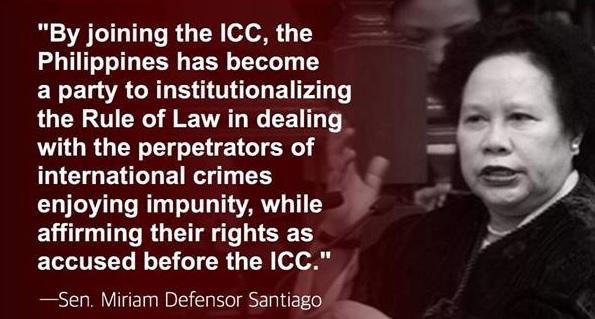
Photo from Sen. Santiago’s Facebook page.
The late Sen. Miriam Santiago who sponsored the Senate Resolution on the ICC ratification said “The ICC is perhaps the most innovative and exciting development in international law since the creation of the United Nations. As a result of the human rights agenda, the Rome Statute is one of the most complex international instruments ever negotiated. It is a creative combination of the concept of state sovereignty and the concept of criminal law.
She enumerated theadvantages of ratification :
1. The Philippines would be able to influence the development of the Rome Statute and the ICC.
2. The Philippines would qualify to nominate a Filipino as one of the 18 judges of the ICC. (Filipino lawyer Raul C. Pangalangan sits as one of the judges at the ICC.)
3. It will put the Philippines in a better position to protect Filipino overseas, when they might suffer crimes against humanity in pursuing work abroad.
4. It will keep the Philippines abreast with contemporary developments in international relations.
Santiago also said: “By concurring with the Rome Statute, the Philippines will help to strengthen institutions like the ICC to end impunity, and affirm the position of the Philippines as a leading human rights advocate in Asia. The culture of impunity in the Philippines is evidenced by the torrential avalanche of corruption cases in the three branches of government, the military, the police, official gambling establishments, and even in the private sector, notably including media outlets and advertising agencies that insist on exposing the public to the deadly threats of giant billboards during typhoon season. The perpetrators should be haled to justice.”
Mumultuhin kayo ni Miriam.
